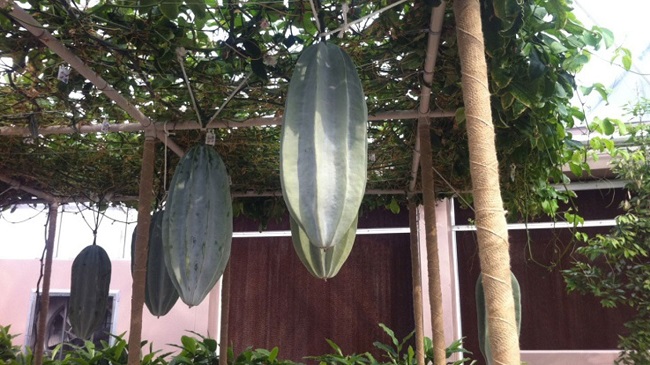Generally, although the level and potential of iron contained in fluted pumpkin has been exploited as a blood tonic that can be administered to boost blood levels in individuals that lack blood, there is still uncertainty, however, about the benefits and potentials of other parts of the plant.
Researchers at the University of Calabar, who exploited the potential of its bark as a blood tonic, warned that it lacks the ability to improve anaemic conditions because it does not contain key minerals and vitamins necessary to mediate this action.
Rather, they stated that its consumption, instead of its leaves, to boost blood levels might cause more harm than good due to its damaging effects on the liver and bones. The study was in the journal Biochemistry Research International.
The researchers tested the water extract made from the fluted pumpkin on animals with anaemia under laboratory conditions in a bid to determine its curative properties and potential for reversing anaemia and protecting liver health.
The fruits were boiled for 45 minutes, after which they were opened and the bark scrapped off. The bark was then blended into a thick paste using an electric blender. The resultant paste was macerated with distilled water for 72 hours to obtain the aqueous extract.
The study involved making the animals drink varying amounts of the water extract of the fluted pumpkin bark and monitoring them for 24 hours for toxicity and signs that they were dying.
For the evaluation of the effects of the fruit extract in anaemic rats, 30 mature albino Wistar rats were used. Its blood-boosting effect was compared with that of Astymin, a blood tonic commonly prescribed for anaemic patients to boost red blood cell production.
The fruit extract failed to show any significant effect in improving the haemoglobin levels in anaemic rats but rather may have contributed to a reduction in haemoglobin levels and an unhealthy increase in liver enzyme levels in the blood of the animals at high doses over a long period of time.
This is indicative of the apparent inability of the aqueous extract of the fluted pumpkin bark to reverse anaemia and may suggest a possible detrimental effect of high doses of the extract over a prolonged period.
Anaemia is typified by a reduction in red blood cell count, haemoglobin content, and packed cell volume (PCV). Generally, reduction in all three occurs due to decreased production of red blood cells, increased destruction of red blood cells, and excess loss of blood from the body.
Studies reveal that anaemia may be caused by inherited disorders or environmental factors such as nutritional problems, infections, and exposure to certain drugs or toxins.
Typically, gradual development of anaemia produces vague symptoms such as fatigue, weakness, shortness of breath, or a poor ability to exercise; however, abrupt development has more severe symptoms such as confusion, dizziness, loss of consciousness, or increased thirst. Furthermore, although anaemia is often characterised by paleness, it is only in significant cases.
Treatment of anaemia largely depends on its cause. A typical example is in the case of iron deficiency anaemia, where iron supplements are widely used in treating cases of anaemia.
Fluted pumpkin, or gourd, is a tropical vine grown in West Africa as a leaf vegetable and for its edible seeds. Generally, the level and potential of iron contained in fluted pumpkin have been exploited as a blood tonic that can be administered to weak patients.
Also, the increase in malnutrition globally has prompted many studies on the impact of different foods on human health and well-being. Depending on their nutritional value, certain foods are considered healthier than others.
Meanwhile, researchers at the Ladoke Akintola University of Technology, Ogbomoso, Oyo State, who validated Justicia carnea leaf as a blood tonic, cautioned against its intake in large doses and over a prolonged period of time.
In Nigeria, Justicia carnea, commonly called ‘Hospital Too Far’ or ‘Blood of Jesus’, ‘Ewe ajeri’ or ‘Ewe eje’ in Yoruba and ‘Ogwu-obara’ in Igbo, is usually prepared with edible vegetables to make soup, boiled separately in water to make tea, or prepared by cooking with other medicinal plants for therapeutic purposes.
The researchers in the journal Clinical Phytoscience suggested that although the extract of J. carnea leaf is relatively safe and could be beneficial in elevating red blood cells, haemoglobin, packed cell volume, and platelet count, its intake at a higher dose and over a period of time caused noticeable liver and kidney injury.
The researchers listed other plants and foods proven effective in speedily boosting blood pressure, such as velvet beans, garden egg leaves, beans, spinach, green leafy vegetables, fish, oysters, and organ meat, such as kidney and liver.
READ ALSO FROM NIGERIAN TRIBUNE






